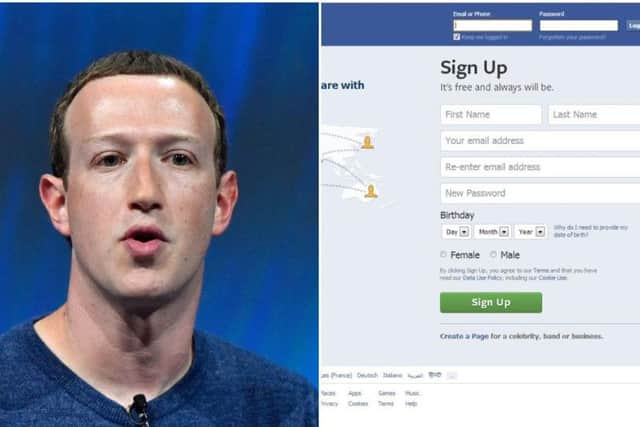Mark Zuckerberg warned encryption plans for Facebook could pose child risk
Facebook is considering end-to-end encryption on Facebook Messenger and Instagram Direct – on top of Whats-App, which is already encrypted – but there have been fears the move could prevent child abusers being caught.
Led by the NSPCC and signed by more than 100 other international groups and academics, the social network has warned the proposal risks giving offenders a place to hide and would jeopardise efforts to identify and disrupt grooming behaviour.
Advertisement
Hide AdAdvertisement
Hide Ad

They have asked Mr Zuckerberg not to proceed until he can guarantee children’s safety will not be compromised.
“At a time when we could be looking to build upon years of sophisticated initiatives, Facebook instead seems inclined to blindfold itself,” they write.
“Children should not be put in harm’s way either as a result of commercial decisions or design choices.”
In 2018, the company made 16.8 million reports to the US National Centre for Missing & Exploited Children (NCMEC) – more than 90 per cent of the 18.4 million total reports that year.
The National Crime Agency (NCA) estimates that in 2018, NCMEC reporting from Facebook resulted in more than 2,500 arrests by UK law enforcement and almost 3,000 children safeguarded in the UK.
“Facebook may be happy to shut their eyes to abuse, but they can’t close their ears to this unanimous concern shown by international experts,” NSPCC chief executive Peter Wanless said.
“Mark Zuckerberg has a choice whether to allow sexual abuse to soar on his sites or listen to those from all over the world asking him to rethink how to implement encryption without putting children at risk.” Barnardo’s, 5Rights, the International Centre For Missing and Exploited Children, and Child USA are also among the list of concerned signatories.
“We know that communication between abusers and children often starts on public platforms before moving to private channels,” said Barnardo’s chief executive Javed Khan.
